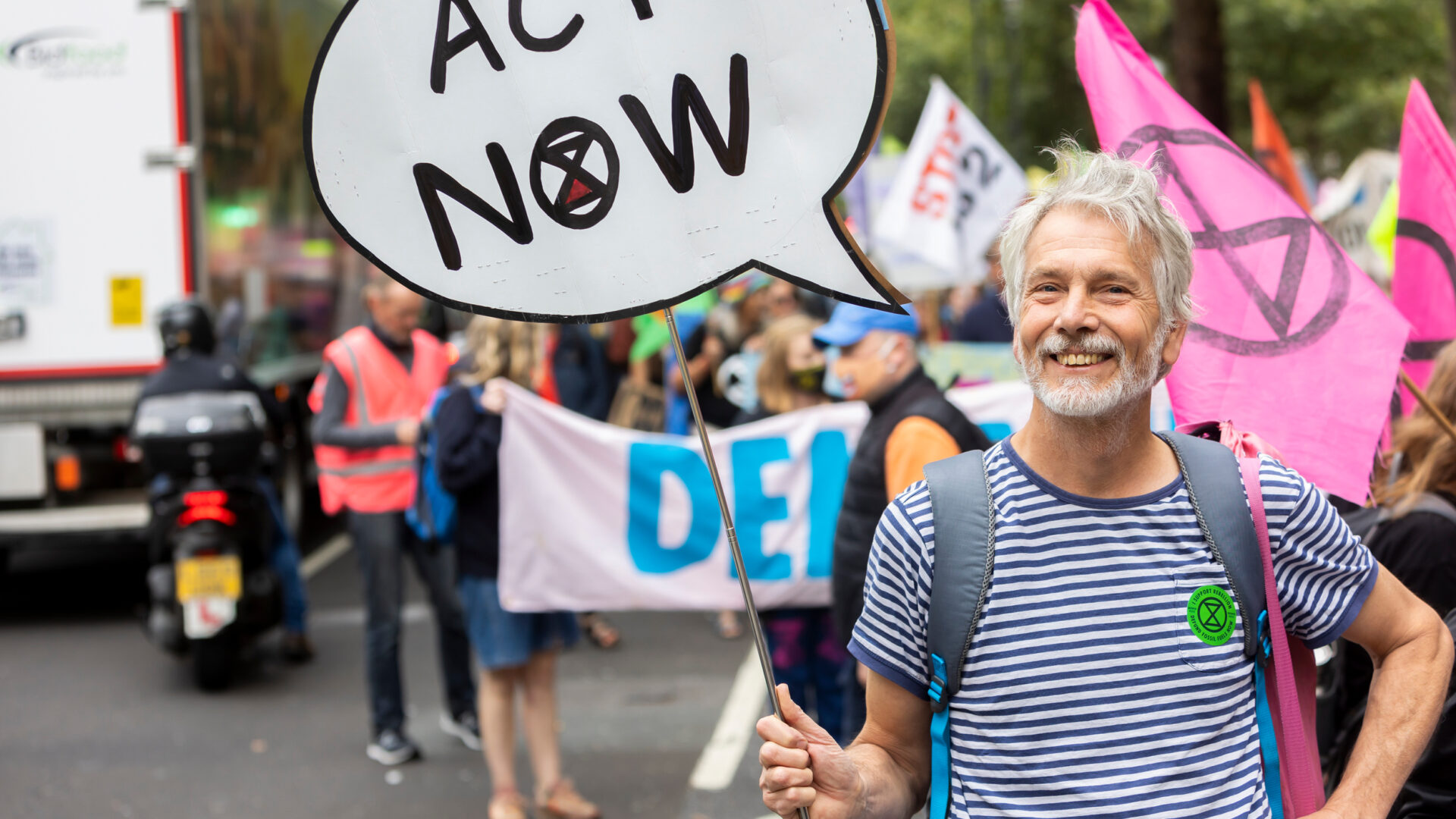It’s a moment of goosebumps and long-awaited vindication for the HelpAge network and countless activists who have tirelessly championed the call for an international legally binding instrument (new UN convention) to protect the rights of older people.
In a historic move, the UN Human Rights Council has adopted a resolution to establish an intergovernmental working group to draft a new convention on the rights of older persons.
This is more than a procedural milestone — it’s a moral and legal turning point. As global ageing accelerates, the proposed convention comes at a critical time. As it seeks to combat ageism, secure legal protections, and ensure older people can access justice, it could also contribute to shaping national and global climate responses. This convention is not just desirable — it is essential. It will embed older people’s rights in law and has a potential of significantly strengthening their role in climate justice and governance, inspiring hope for a more inclusive, just future.
Climate change and the rights of older persons: a critical nexus
Older people are among the most affected by climate impacts — from heatwaves to displacement — yet remain largely excluded from emergency planning and climate policymaking. Age-related vulnerabilities, combined with social isolation and systemic neglect, heighten their risk.
Despite their wealth of lived experience and ecological knowledge, older people are often seen as passive recipients rather than active agents of change. This exclusion undermines both justice and sustainability. Recognising and protecting their rights — to life, health, adequate housing, and a clean, healthy and sustainable environment — under international law is vital to collective resilience.
A UN convention would articulate how these protections apply in older age, guide governments in integrating older people into climate strategies, and strengthen legal grounds for accountability and policy reform.
Landmark legal judgements: climate protection as a human right
Recent rulings affirm climate protection as a fundamental human right. In Swiss Older Women vs Switzerland (2024), the European Court of Human Rights ruled that weak climate action endangered the lives of older women, recognising older people as rights-holders and change-makers.
In India, the Supreme Court found that climate protection falls under the constitutional right to life, emphasising the particular risks faced by older people. Germany’s Neubauer ruling upheld intergenerational equity, a principle that also applies to older persons.
Together, these judgements confirm a growing consensus: climate justice must include the rights and dignity of older people. A UN convention could reinforce this momentum and ensure governments and corporations are held accountable.
Unlocking new doors: transforming policy and discourse
The proposed convention offers a chance to reshape climate policy through an age-inclusive lens. It could highlight how climate change affects older people — particularly in the Global South and in vulnerable regions — and how age intersects with other factors like gender, disability, and poverty.
It could include provisions around inclusive indicators, age-responsive adaptation, and greater involvement of older people in disaster risk reduction, urban planning, and health systems. Crucially, it could shift the narrative, recognising older people as leaders in resilience and stewards of intergenerational justice.
The convention could ultimately help ensure older people are no longer sidelined but integrate in global climate efforts.Further, the proposed UN convention could strongly support HelpAge’s advocacy for inclusive climate finance, urging funds like the Green Climate Fund and Adaptation Fund to create windows for older people’s adaptation efforts. This would help embed their needs in climate financing and position them as key actors in climate action.
Conclusion: a call for bold, inclusive action
Creating a UN convention on the rights of older persons would not only be a human rights milestone but it could be used to strengthen efforts to address climate change by placing older people integral of climate justice. As the climate crisis deepens and the world ages, older people must be seen, heard, and protected.
This convention is the legal, moral, and political step that could ensure global climate action truly leaves no one behind. Let us act boldly and inclusively — for the sake of older people, and the future of us all.
Written by Hari Krishna Nibanupudi, Climate Change and Ageing Adviser, HelpAge International

